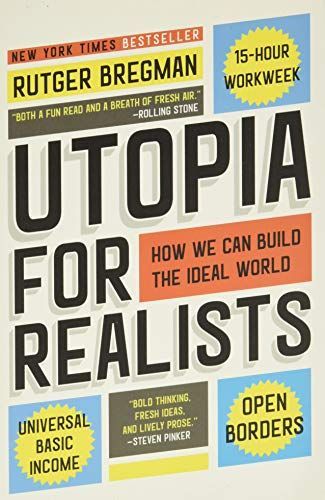
Utopia for Realists And How We Can Get There
THE SUNDAY TIMES BESTSELLER 'Listen out for Rutger Bregman. He has a big future shaping the future' Observer 'A more politically radical Malcolm Gladwell' New York Times 'The Dutch wunderkind of new ideas' Guardian In Utopia for Realists, Rutger Bregman shows that we can construct a society with visionary ideas that are, in fact, wholly implementable. Every milestone of civilisation – from the end of slavery to the beginning of democracy – was once considered a utopian fantasy. New utopian ideas such as universal basic income and a fifteen-hour work week can become reality in our lifetime. From a Canadian city that once completely eradicated poverty, to Richard Nixon's near implementation of a basic income for millions of Americans, Bregman takes us on a journey through history, beyond the traditional left-right divides, as he introduces ideas whose time has come.
Reviews
Priyanka Pal@priyanka__pal
Filipa Carvalho@fii
Katarina@braveasnoun
Florencia Villalobos@flowo0
Chris G@encima
Chris G@encima
Sachar @sachark
Inga Kühn @7crowsinatrenchcoat
Shelby Doherty@dohertys17
Semih Pekpak@smhpkpk
Flavia Louise@flaviaaalouise
Chris G@encima
Barbara Guerrero@oddityMX
Darice de Cuba@Darice
Jomo@jomo
Juan Agrón@agron
Sally@ciao_sally
leah@nikapika
Saskia Klemm @saskiaklm
Dominik Hofer@hfrdmnk
Adam@looptem
Miguel@augustimely
Olga V@berrybell
Erich@erichrc
Highlights
Lukas@bngluk
Page 125
Lukas@bngluk
Page 18
Lukas@bngluk
Lukas@bngluk
Page 33
Shelby Doherty@dohertys17
Shelby Doherty@dohertys17
Shelby Doherty@dohertys17
Shelby Doherty@dohertys17
Shelby Doherty@dohertys17
Piet Terheyden@piet
Page 235
Piet Terheyden@piet
Page 234